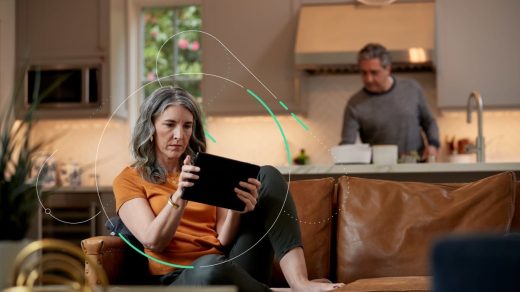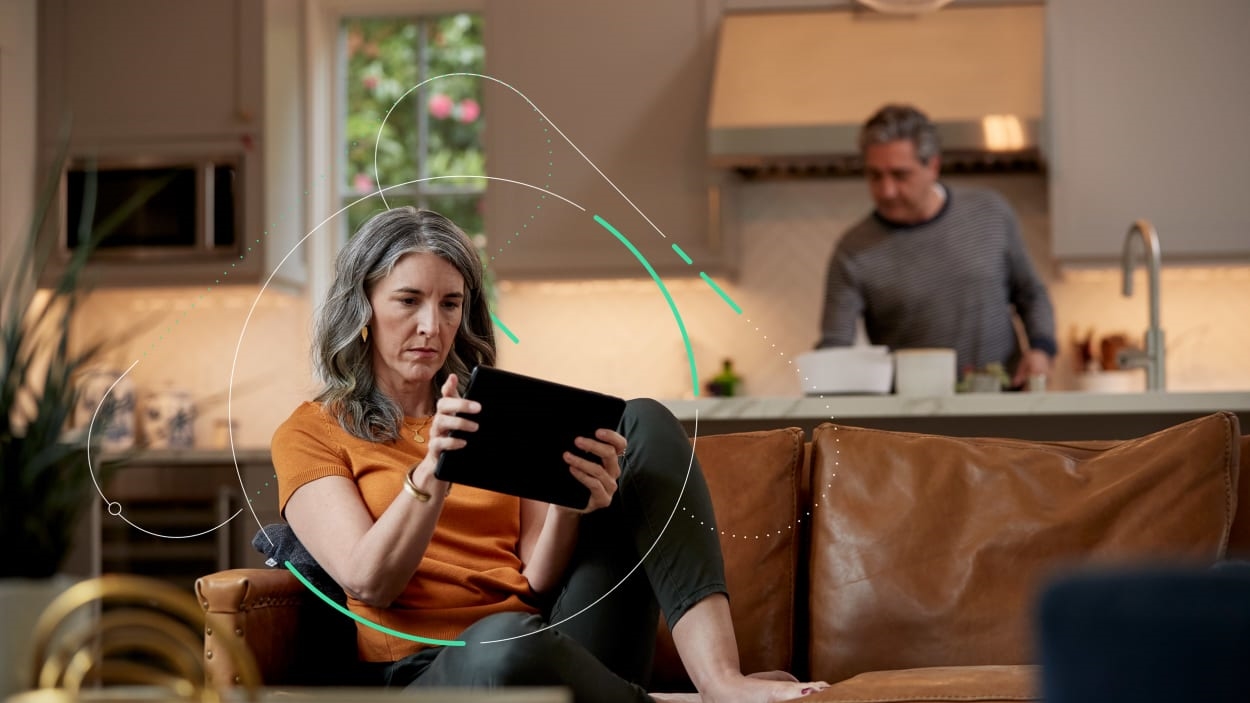This company’s video game could be a drug-free ADHD treatment for adults
Barbara Wagner, 70, was having trouble with retirement. After a long and successful career in property management and as a business owner, she decided to retire in 2017, but couldn’t seem to hit her stride. She built a house. Then another. She moved and then moved again. She started arguing with her husband, and her task list kept getting longer and longer while she couldn’t seem to finish anything—including routine tasks like making her bed or putting on her makeup.
Last year, she went to see her doctor, who diagnosed her with ADHD. The diagnosis made sense—as a child, Wagner had struggled in school and been disruptive in class. She’d managed to find the perfect career, but now, without it, she was struggling again. Her doctor prescribed her Adderall. It helped immediately, but when it wore off, Wagner was left feeling exhausted and Adderall wasn’t perfect. However, Wagner also had high blood pressure and she was worried about increasing her dose.
She wanted a different solution for her ADHD—and an ad she found about a clinical trial for a video game geared toward adults with ADHD sounded like a good option. She signed up immediately. “Drug free? That might be perfect for me,” Wagner said. “I’m not a game player, but when I commit to something I stay to it and I really wanted to try this.”
The video game was EndeavorOTC, which launched in the Apple App store in June. It was designed by Akili Interactive, which has used games as a tool to address ADHD before, but never for adults. The company’s EndeavorRx, a prescription video game that treats ADHD in children, has been approved for marketing since 2020—earning Akili a spot on Fast Company‘s 2021 list of the most innovative medicines and therapeutics companies—and has been prescribed more than 10,000 times.
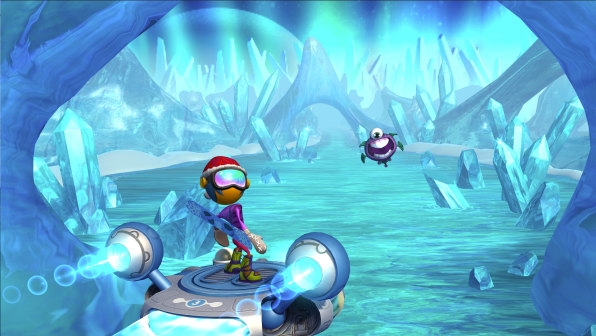
Akili, whose headquarters are nestled in rabbit warren streets of downtown Boston, was founded by Eddie Martucci, Adam Gazzaley, Matthew Omernick, and Adam Piper in 2011. Martucci, who serves as CEO, received his PhD in molecular biophysics and biochemistry from Yale, focusing on drug design research, then spent 14 years at PureTech Ventures, a venture capital firm aimed at tackling healthcare problems. There, he realized there was a large patient population that struggles with cognitive function that was being left behind since medication typically treats mood.
“We realized there’s a huge space to develop technologies that can target those cognitive issues,” Martucci says. “Only 20% of ADHD adults are treated, and we think one of the major factors is because medication is the only option. We’re trying to bring a new option for people who want it.”
At the moment, the most common treatments for ADHD are medication and behavioral therapy. About 62% of children with ADHD take medication and 47% receive behavior treatment according to the Centers for Disease Control and Prevention. However, not everyone can take medication such as people with high blood pressure or people who are breastfeeding. “If you think about it ADHD treatments haven’t changed since the 1960s when we were prescribing Ritalin,” says Dr. Scott Kollins, chief medical officer at Akili. “The frontline treatment isn’t moving the needle on improving people’s outcomes.”
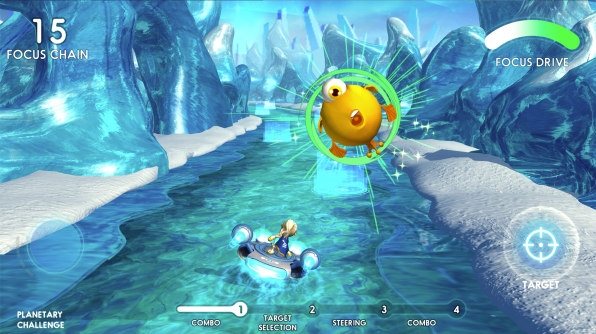
In 2013, Akili licensed technology based on a study by cofounder Gazzaley, a neurologist and UCSF professor, who now sits on Akili’s board. The study, which later ended up on the cover of Nature, featured adults playing a video game that activated neural networks in the brain that improved their focus. That research was incorporated into EndeavorRx, which is prescription-only, since children are a more sensitive group and parents and clinicians tend to want to keep a closer eye on their treatments, Martucci notes.
However, once it launched, the company turned its attention to EndeavorOTC an over-the-counter product for adults with ADHD. ADHD diagnoses for adults are increasing dramatically: diagnoses grew 123% between 2007 to 2016, compared to 26% for children during the same time period. To serve this population, Akili began clinical trials for EndeavorOTC in 2021, building on five clinical trials they’d done for the children’s version to measure the safety and efficacy of the product. It also brought on Jon David, a mobile gaming veteran who’s worked on Plants vs. Zombies and Bejeweled. In the midst of it all, Akili went public via SPAC last August, nearly 18 months after its last financing effort, which brought in $110 million of Series D funding and $50 million in debt financing.
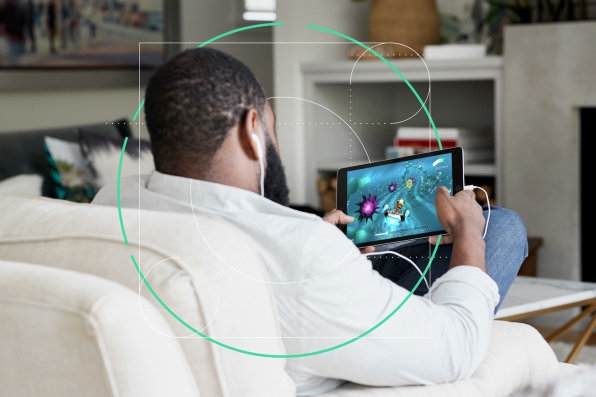
EndeavorOTC promises to be an ongoing revenue stream for the company. It’s available for $24.99 a month or $129.99 a year. (Martucci says they’re still testing pricing.) The game is meant to be played five days a week in 25-minute increments for a total of six weeks. The game cuts players off after twenty-five minutes, so there’s no risk of video game addiction, but even without the cutoff, treating the game like entertainment would be difficult. “By design it’s challenging,” Martucci says. “While it may be fun compared to activities like exercise or homework, it’s a treatment first and foremost, different than a game developed for the sole purpose of entertainment.”
I can attest to that. EndeavorOTC is, in fact, not fun because it forces players to focus on their weaknesses. Players steer a cart through a racetrack trying to collect power zones, while creatures fly at them at random. The player is supposed to tap on creatures of a certain color. As the player levels up, they go to different worlds where the tracks get harder and the number of creatures increases, making it more difficult to identify which ones to collect. The point is to train users to focus and pay attention to some cues while tuning out other distractions. When I played, I was good at tapping on creatures, but terrible at driving, so the cart slowed down. I only played for five minutes but I was pretty sure that after twenty-five minutes I’d have no desire for more.
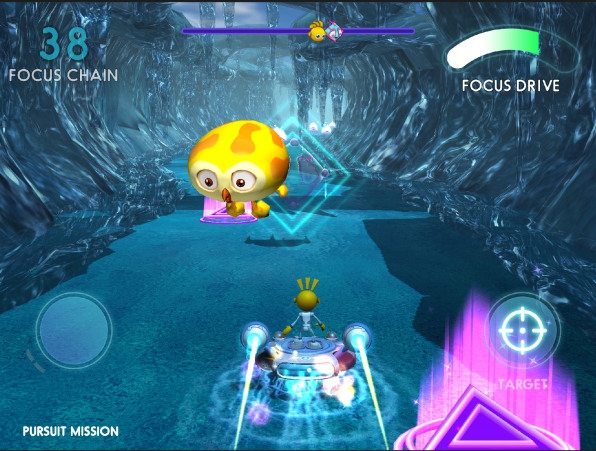
During the clinical trials, adults saw their focus increase as much as 85%, while 73% reported quality of life improvements, according to Akili. At the moment it’s too early to have data on how EndeavorOTC users are doing, but for Wagner, the results kicked in within three weeks. She stopped arguing with her husband. She was able to make her bed and put on her makeup. Even though it’s been nearly six months since the trial, she says she’s still seeing the after effects. Now that the game is out, she plans to use it regularly. She likes that it gives her points every time she plays, making it feel like she accomplished something instead of feeling defeated. Her only critique? “I wish they had more worlds,” she said. “I like variety and I get bored easily.”
(9)

